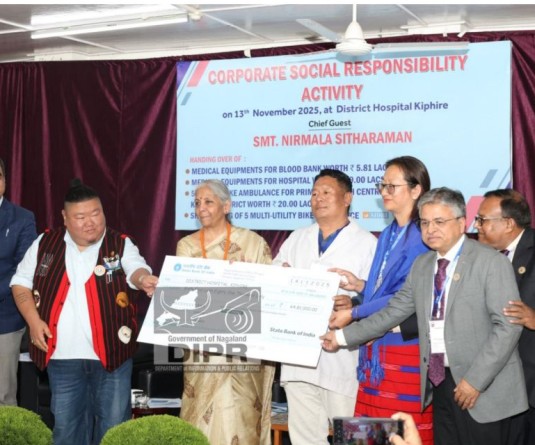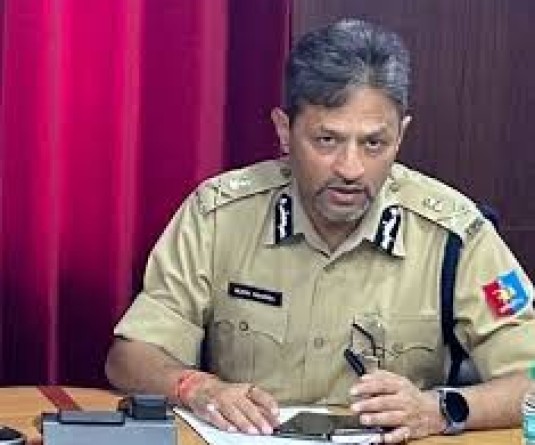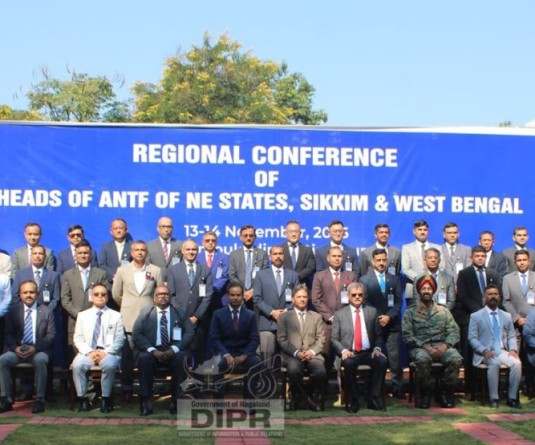
Proxy votes dilute the legitimacy of the electoral process in Nagaland
Morung Express News
Dimapur | February 27
At Unity Village under Ghaspani-1 A/C, polling is going on “peacefully,” much like everywhere else in Dimapur. But even as voters are in line, voting stops abruptly at one of the three polling stations when The Morung Express enters at 1.30 pm, by which time 78% of its votes have been cast. “There are no more genuine voters,” says the Presiding Officer at the awkward silence that has engulfed the station as polling officers pass glances. “They are all here to cast votes for their relatives and we are not allowing that,” says another polling officer at the polling station.
Even as a GB standing outside the station informs us that voting has been “peaceful,” a polling officer comes out and makes an announcement to the people in queue who confirm that they are here to cast votes for their “relatives.”
“You’ve given proxies already. Be satisfied with that,” the election official pleads. An agent of one of the candidates also comes out and tells the people waiting that they can no longer accept proxy voting as election observers have arrived. “Please understand. We would have allowed you otherwise.”
Proxy voting in Nagaland is a norm that continues unabated.
At another polling station on the same ground of the Village, the tablet given by the Election Commission of India to record poll proceedings has malfunctioned, exactly like other tablets in several polling stations around Dimapur district.
445 votes out of the 834 votes here have been cast by 1:00 pm. No IDs are being checked. Voters come in, show their voter slip and cast a vote. Even as we speak to the Presiding Officer, a non Naga woman casts a vote on behalf of her husband. She shows us her husband’s voter ID and says, “He lives far away, what to do?”
Young boys ride on the same wave casting rampant proxy votes. Security forces, although visibly agitated, do nothing as a few men and women get in and out of line at random clutching others’ voter slips. A woman sits with an umbrella close enough to the line, supplying the money needed to run the proxy machine.
Elsewhere in Ghaspani-1 A/C, the supporter of a candidate informs us, “Dhama-dham proxy marishe!” We cast lots of proxy votes!
We move to Dimapur-III A/C to check if Ghaspani-1 is an aberration. It is not. Near a polling station in Kushiabil, a man says his son is voting for the family. A shopkeeper says her husband will vote for everyone in the family. The village council has agreed on a consensus candidate and family representatives have been “permitted” by the village council to vote for all members of their immediate family.
The Presiding Officer here has suddenly taken ill, replaced by a constable of the Nagaland police—CCTV recording is on and polling is slow. Barely 20 people in the line have moved between 11:00 am and 12.30 pm but 142 votes have been cast on paper, informs a polling officer.
Meanwhile, “I have been sitting here since 7:00 am,” says a woman from a minority community but had not yet been allowed into the polling station premises, guarded by central security forces, even at 12:30 pm. She came to vote for the betterment of her children’s future.
We move to Dimapur-II A/C. At Landmark Colony, young men and women, just like around other polling stations, run about all day organizing two essentials—indelible ink remover and voter slips. At 2:30 pm, a bunch of young men are forcing one of the presiding officers to open the gates. “Last chance please! It is like this in Nagaland, it is the people’s voice,” says one young man. We point to the ink on his hand. “It is a birth mark,” he says and everyone laughs.
A group of Nagaland police women arrive at the spot. They watch. They leave. A male police officer at the site, sensing trouble, says, “You can go in and negotiate the vote but please don’t create ruckus outside.” When another police officer, standing 10 meters away, is asked why the police are doing nothing about the blatant and forceful proxy voting, he says, “It is not my area.”
Proxy votes are not cast in a vacuum. The Indian electoral system is supposed to be stringent. Presiding Officers (PO), with magisterial powers, in each Polling Station (PS) do a round of mock polls for a count of about 50 votes before polling opens at 7:00 am. Booth Level Officers and a host of polling officers assist each PO. When a voter enters the heavily guarded PS, their voter slip is checked along with a photo identity card, which is matched with the e-roll, which is tallied with a mark copy and a separate male/female list that a polling officer ticks off. Meanwhile, polling agents monitor the process on behalf of each candidate. Voters countersign a register before getting a pink slip and submitting their voting slip at the desk where their nail is also stained with indelible ink. Then they cast their secret ballot at the Electronic Voting Machine before they go out of the voting room. At 4:00 pm, when the PO seals the EVM, all documents have to tally up. Those wanting to cast proxy votes should generally be given a warning at first and then security asked to intervene. Five ECI observers—2 general, 2 expense and 1 police—move around all day from PS to PS.
Even then, proxy votes are cast, at times on behalf of the old and infirm; other times by robbing someone else’s right to universal suffrage, but ultimately diluting the legitimacy of the electoral process in Nagaland.






